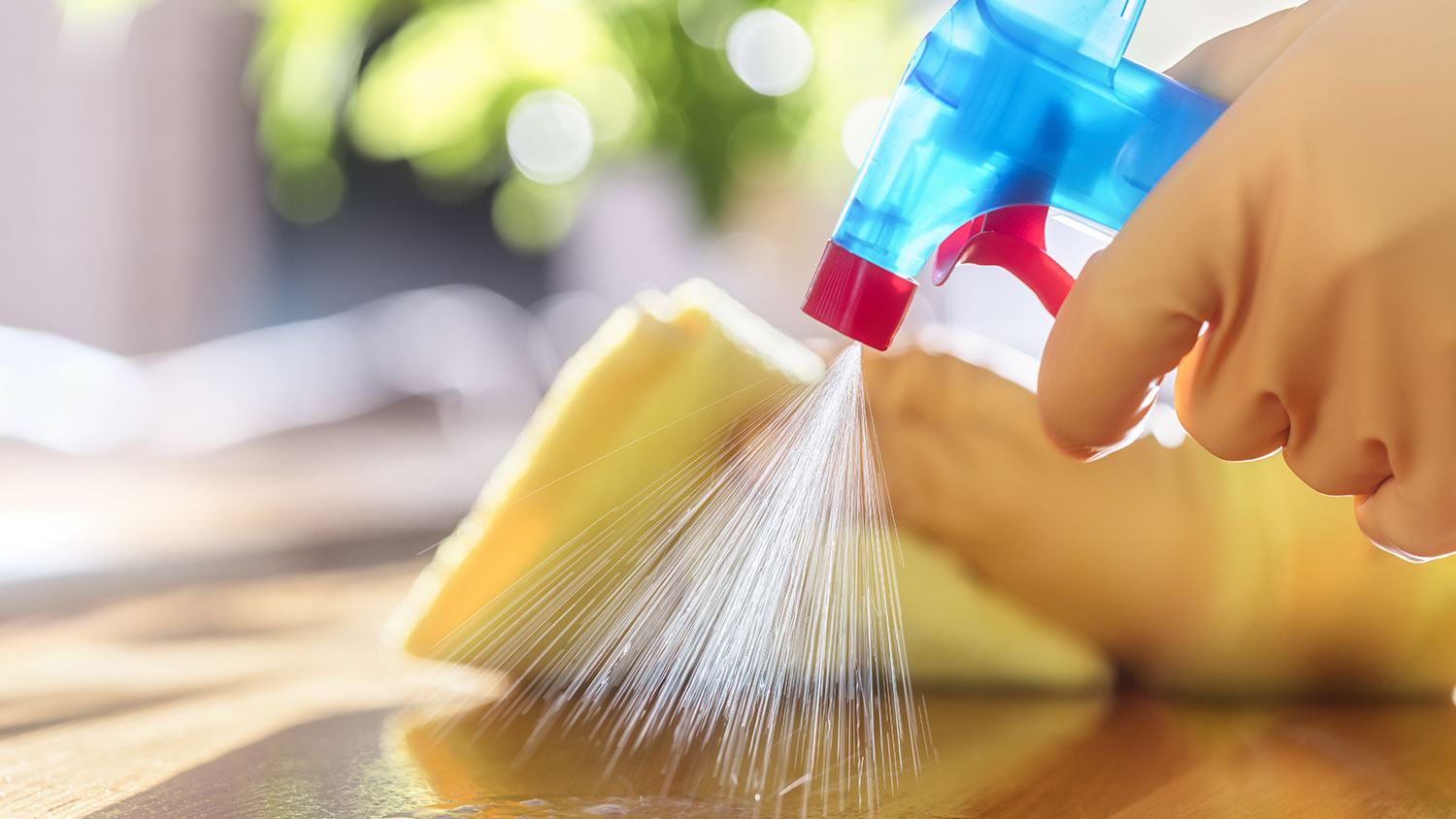HOW TO PROTECT YOUR HOME FROM GERMS DURING THE COVID-19 PANDEMIC

Amid the Coronavirus pandemic, keeping our homes clean and germ-free is at the forefront of our minds. We’re all taking every precaution to reduce the spread of the virus. Beyond washing our hands as often as possible, we must get into the habit of regularly cleaning all surfaces we touch.
Below are a few essential tips to protect your home and your family from germs during this time.
Wear disposable gloves
While doing your daily cleaning and disinfecting in and around the house, ensure that you’re making use of disposable gloves, as this will greatly reduce the risk of germs spreading any further. Once you’re done cleaning, dispose of the gloves and immediately wash your hands with soap and warm water for 20 seconds.
Clean before you disinfect
Although you’re most likely reaching for the disinfectant first, you should thoroughly clean the surface with a soapy sponge or cloth and then apply disinfectant after. Once you’ve disinfecting the surface, don’t touch or wipe the surface for at least 30 seconds to allow the disinfectant to dry. Ideally, you should use diluted household bleach solutions (simply mix 4 teaspoons of bleach to 1.1 litres of water), 70% alcohol solutions or household cleaners and disinfectants.
Pro tip: Products should say “Kills 99.9% bacteria and viruses” on the packaging.
Pay attention to germ hot spots
Your focus should be on high traffic areas such as door handles, the kitchen sink, countertops, phones, remote controls, the fridge door, toilet handles, children’s toys and light switches. Keeping antibacterial wipes near germ hotspots will act as a reminder to wipe them down before using them.
Although wiping an item down is an effective way of cleaning it, placing smaller loose items in the dishwasher is far more effective for killing germs. If you don’t have a dishwasher, you can soak them in hot water and disinfectant.
Replace or wash cleaning tools regularly
Regular cleaning will be counterproductive if the tools you’re using are infected with bacteria. Sponges and cloths hold onto a host of germs. These need to be washed with disinfectant soap and hot water or replaced regularly. If you’re not already, you should sanitise your mop between uses, otherwise, you’re simply spreading the germs every time you mop.
Pro tip: Placing your sponges in soapy water and then into the microwave for two minutes or put it in the dishwasher will help kill any festering colonies of germs between uses.
Wash your clothes and bedding often
Ideally, bedding should be washed once a week to get rid of any lingering germs in the bedroom. Germs can build up on blankets and sheets, affecting your family while they sleep. Don’t forget to wash your throw pillows, towels and curtains. As an extra precaution, do your laundry at a temperature of 40°C or 60°C to reduce bacteria.
Pro tip: Rinse your washing machine with bleach to discourage germs from growing inside.
Final Advice
While these tips won’t eliminate the risk of you or your family being exposed, they will significantly reduce your chances. Being vigilant and taking the necessary precautions will help keep everyone safe and healthy. For now, it’s best to stay home and remember the safeguards against the Coronavirus, should you need to leave the house for essentials.
Send to a Friend